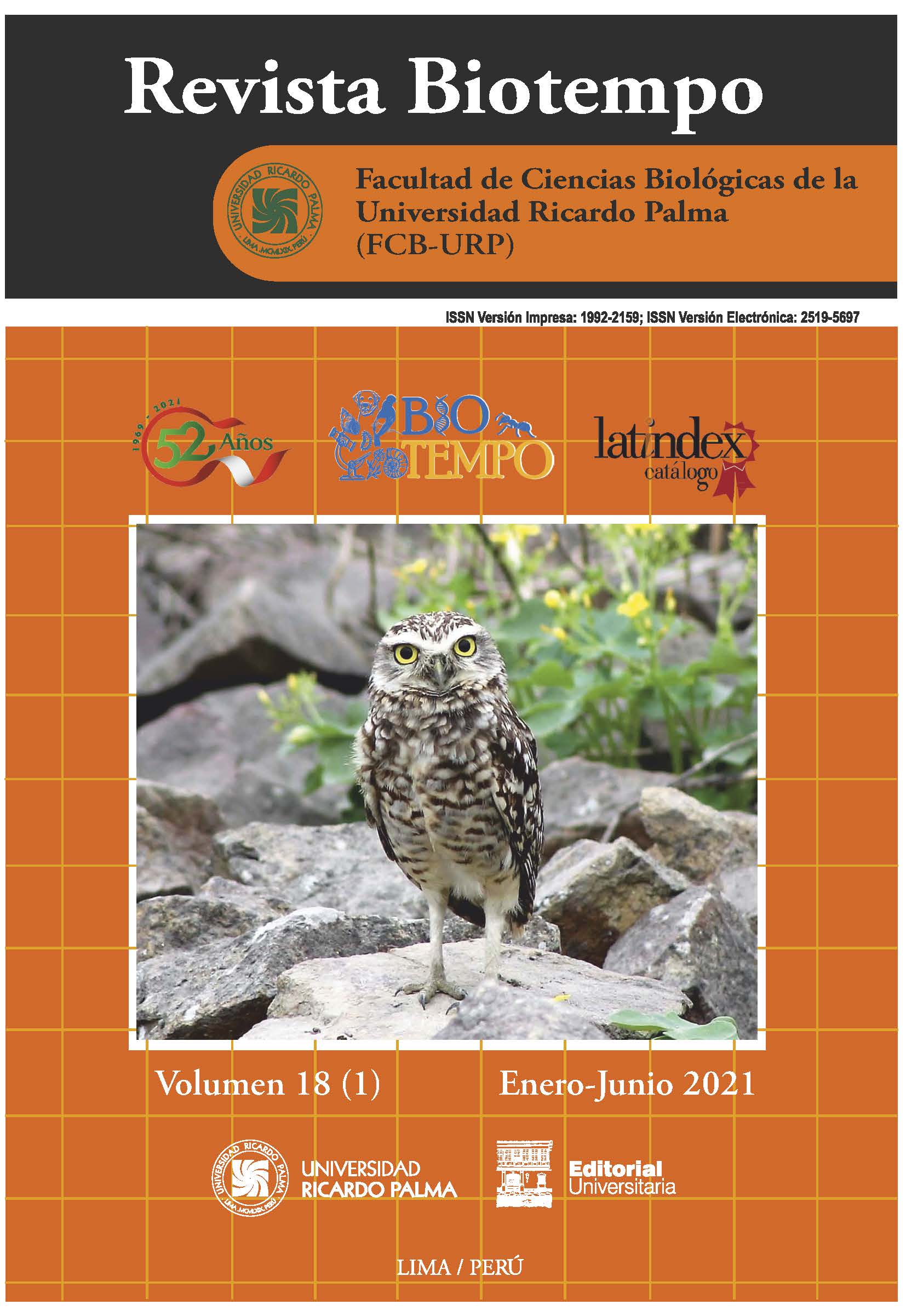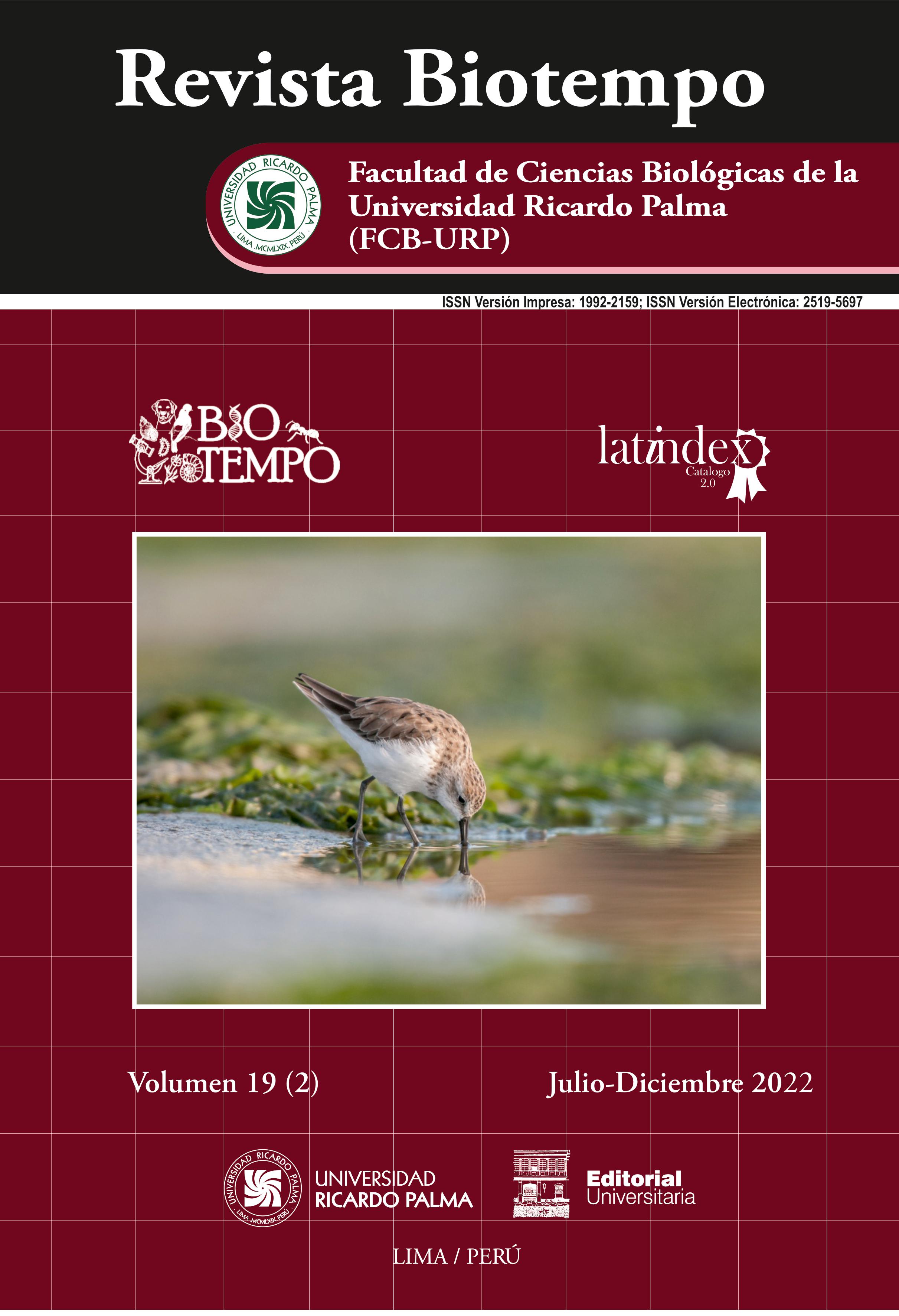EXTRACTION, CHARACTERIZATION AND ANTIMICROBIAL ACTIVITY OF CAROTENOID PIGMENT FROM MICROCOCCUS LUTEUS
DOI:
https://doi.org/10.31381/biotempo.v18i1.3950Keywords:
antimicrobial, carotenoid, Micrococcus luteus, pigmentAbstract
Micrococcus luteus (Schroeter) Cohn 1872 is one of the bacteria found in the environment that presents colonies with a very characteristic yellowish color. Previously, this color was identified as the result of carotenoid production in this species and that it can have a variety of beneficial properties that may depend on the origin of isolation. Currently, it is important to explore several food grade pigments from natural sources and their potential effects on the food industry, human or veterinary health since they tend to be less harmful. For that reason, the first objective of the study was to extract this carotenoid pigment from M. luteus isolated from the environment with volatile organic solvents. Second, to characterize this pigment using a Thin Layer Chromatography technique. Finally, to perform an antimicrobial essay testing some of most common pathogens in human and animal health all provided by the Ricardo Palma University Microbiology Laboratory, Lima, Peru. Results included not only a successful and simplified crude extraction of the carotenoid pigment, but probed its antibacterial activity against some pathogens strains such as V. parahaemolyticus, P. fluorescens and R. equi.










